Mastering Smart Heaters: A Comprehensive Guide to Smart Home Heating

In the age of smart technology, our homes are becoming more efficient and convenient, thanks to innovations like smart heaters. These advanced heating systems offer significant energy savings, making them an attractive option for homeowners looking to reduce their energy bills and carbon footprint. If you're considering upgrading to a smart heater, this guide will provide you with everything you need to know.
What Is a Smart Heater?

A smart heater is a modern heating device that connects to your home's Wi-Fi, allowing you to control it remotely via a smartphone app or a home assistant hub. This connectivity provides enhanced functionality compared to traditional heaters, enabling you to manage your home's temperature more efficiently and conveniently (Energy Saving Trust).
With a smart heater, you can:
- Monitor and control your energy consumption.
- Create custom heating schedules.
- Set timers for operation.
- Adjust settings for different rooms (multi-zone control).
- Use geofencing and motion sensors to optimise heating based on occupancy.
Smart heaters range from compact wall units to larger systems with integrated radiator mechanisms, offering options for various budgets and home sizes.
Features of a Smart Heater
Smart heaters typically come with a suite of features accessible through a downloadable app on your smartphone or tablet. Common features include:
- Basic temperature modulation with a slider function.
- Power on/off control.
- Optimal temperature settings.
- A display screen showing the current room temperature.
- The ability to set scenes for specific rooms.
- Intelligent machine learning to create custom schedules.
- Management of multiple heating devices simultaneously (CNET).
Not all smart heaters have every feature, so it's essential to choose one that meets your specific needs.
Want to learn more about Smart heaters? Here's a great video breaking down everything you need to know about these efficient heaters!
How Do Smart Heaters Work?
Smart heaters connect to your boiler and network simultaneously, allowing you to control them via a remote control, an app, or a home assistant hub. They can manage multi-room heat settings and hot water control, and some models feature geofencing and motion sensor technology to optimise heating based on room occupancy (TechRadar).
These systems also include safety features to protect your home's piping and advanced capabilities to adjust temperatures according to weather conditions, ensuring efficient use of heat energy (Which?).
Benefits of Smart Heaters
Higher Level of Comfort
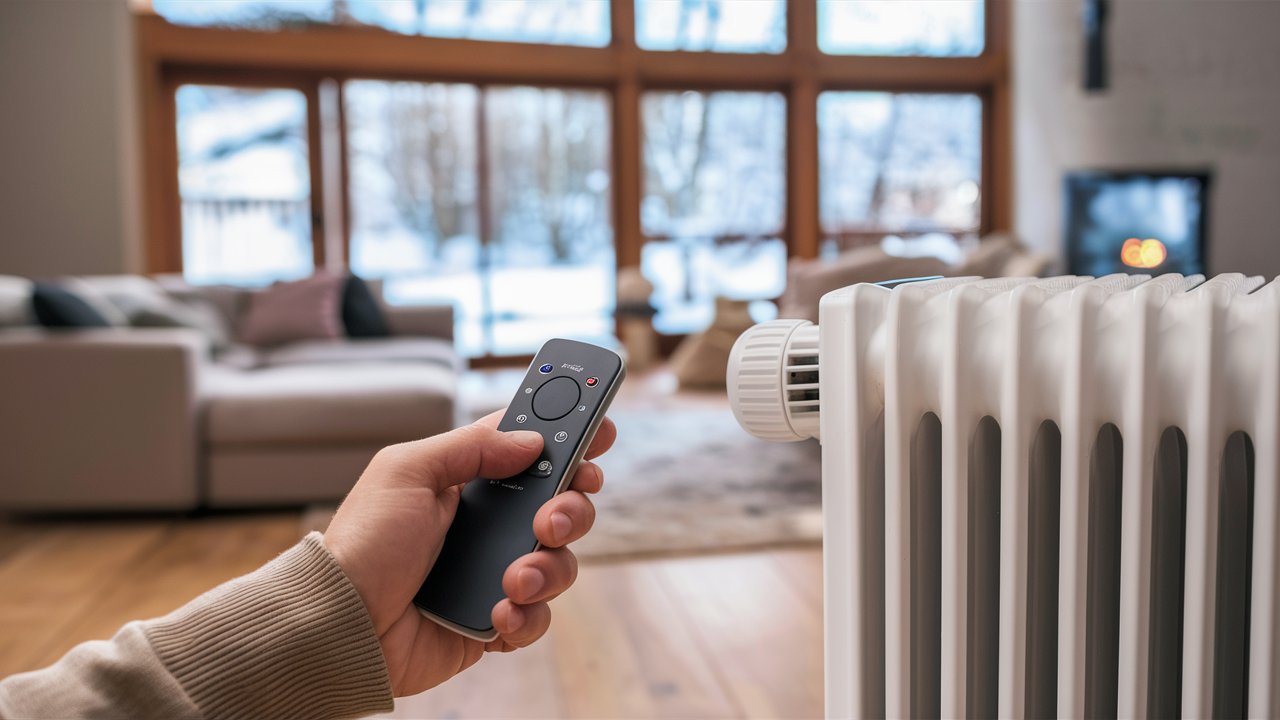
Smart heaters offer precise control over your home's temperature, ensuring each room is at the perfect warmth level. You can set different temperatures for various rooms and times of the day, creating a comfortable environment tailored to your needs (Homebuilding & Renovating).
Imagine the possibilities:
- Morning Warmth: Wake up to a warm bedroom while the kitchen heats up just in time for breakfast.
- Evening Comfort: Enjoy a cosy living room for movie nights while keeping bedrooms cooler for better sleep.
- Motion Sensors: Automatically adjust the temperature when you enter or leave a room, enhancing comfort effortlessly.
Better Functionality
Control your smart heater via remote control, app, or voice commands. Some models feature touchscreen displays for easy access to settings. The intelligent system automates heating based on schedules, sensors, and room activity, eliminating the need for manual adjustments (TechHive).
Convenient features:
- Remote Control: Adjust the temperature from anywhere in your home or even while away.
- Voice Commands: Use Amazon Alexa or Google Home to change settings without lifting a finger.
- Scheduling: Set the heating to turn on before you arrive home or wake up, ensuring a warm welcome.
Better Energy Saving
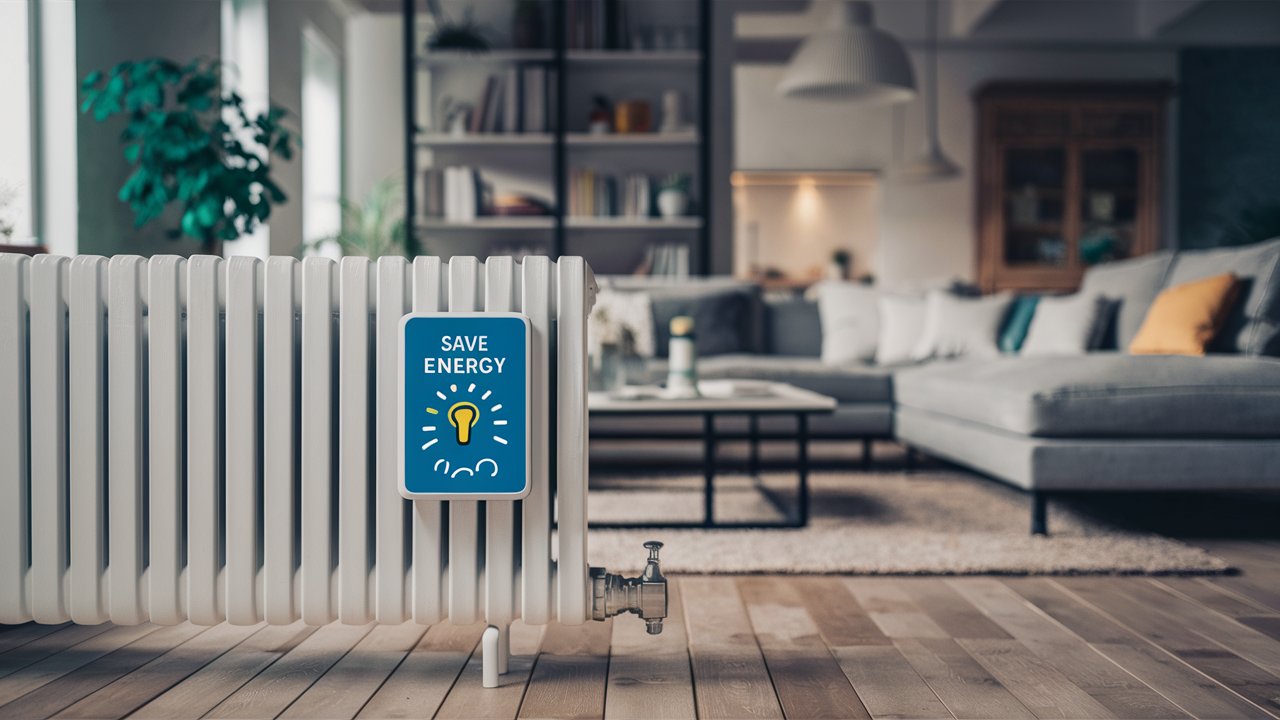
Smart heaters help reduce energy consumption by allowing you to make efficient heating choices. They can be programmed to lower heating levels during peak hours and rely on latent heat energy, leading to significant savings on your energy bills (Energy.gov).
Energy-saving tips:
- Learning Schedules: Automatically lower the temperature when you're at work or asleep and raise it before you return home or wake up.
- Weather Forecasts: Adjust heating in advance based on predicted weather changes.
- Remote Control: Ensure you never waste energy heating an empty home by adjusting settings from your smartphone.
Network Compatibility
Smart heaters require a stable network connection for optimal performance. Common networks used include:
- Wi-Fi: Widely compatible with most smart devices, providing strong coverage and reliable connectivity (Smart Home Solver).
- Z-Wave: Uses low-power radio waves, ideal for small to medium-sized homes. Creates a mesh network extending the range of your smart heating system.
- Zigbee: An open standard network protocol used in larger buildings, offering mesh networking capabilities. Reliable and flexible connectivity for comprehensive control.
By ensuring your smart heater is compatible with these networks, you can enjoy seamless integration with your existing smart home ecosystem, enhancing the overall functionality and reliability of your heating system.
Types of Smart Heaters
Smart Thermostats

Smart thermostats are the brains of your heating system. They monitor and control the ambient temperature, learning your heating habits over time. This intelligent system adjusts settings automatically, ensuring optimal comfort and energy efficiency without constant manual adjustments (Wirecutter).
Key features:
- Learning Capabilities: Understand your schedule and preferences.
- Remote Control: Adjust settings from anywhere via an app.
- Voice Commands: Integrate with smart home assistants for hands-free control.
Smart Thermostatic Radiator Valves (TRVs)
Smart TRVs offer precise control over individual radiators in your home. By regulating the flow of hot water, these valves maintain the desired temperature in each room, conserving energy and enhancing comfort (Tech Advisor).
Key benefits:
- Room-by-Room Control: Tailor the temperature in each space.
- Energy Efficiency: Only heat rooms when needed.
- Easy Installation: Upgrade existing radiators without major modifications.
Smart Electric Radiators
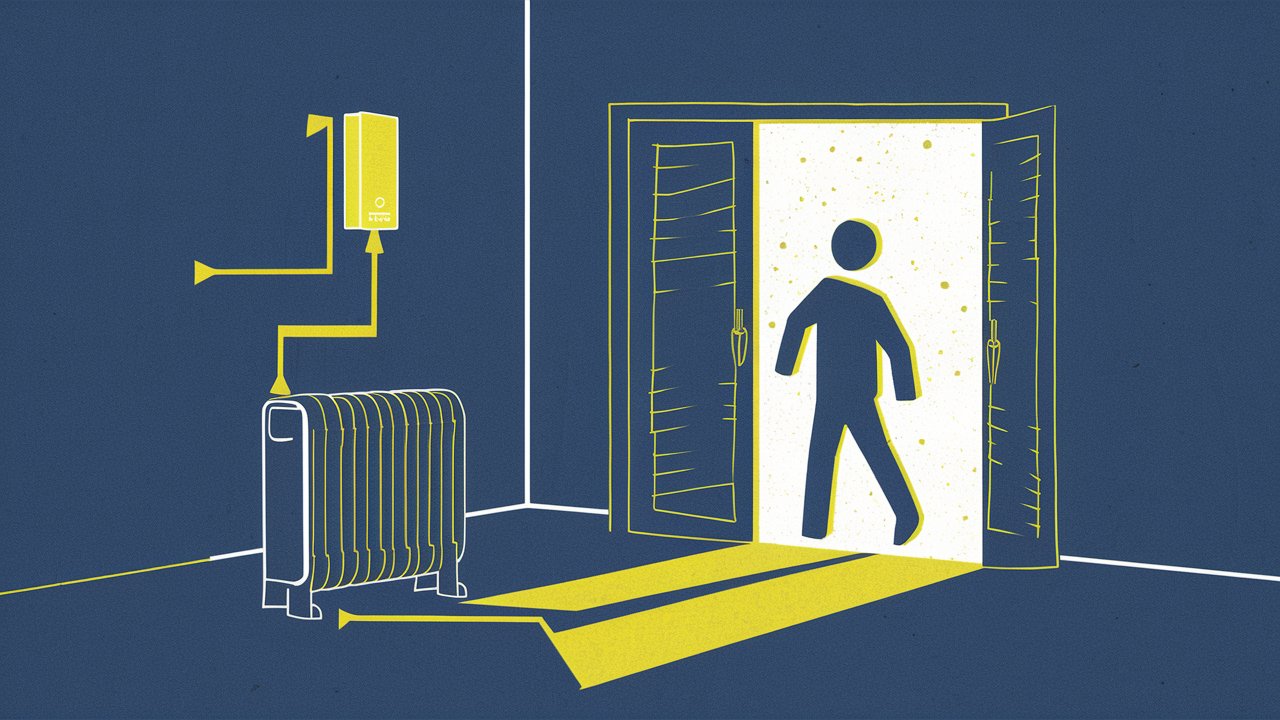
Smart electric radiators are an all-in-one solution for both heating and hot water needs. Operable via Wi-Fi, remote control, app, or voice commands, they offer unparalleled convenience and efficiency (Digital Trends).
Highlights:
- Versatile Control Options: Use apps, remotes, or voice commands.
- Integrated Systems: Heat your home and water efficiently.
- User-Friendly: Simple to operate and adjust.
External Components
Enhance your smart heating system with external components like motion sensors and window/door sensors. These add-ons increase functionality by automatically adjusting the heating based on room occupancy or open windows, ensuring no energy is wasted (T3).
Enhancements include:
- Motion Sensors: Adjust heating when someone enters or leaves a room.
- Window/Door Sensors: Automatically turn off heating if a window or door is left open.
- Seamless Integration: Easily incorporate with your existing smart heating setup.
Bringing It All Together
Combining these types of smart heaters and external components can transform your home into an efficient, comfortable haven. By leveraging advanced technology and intelligent controls, you can enjoy a perfectly heated home while saving on energy costs.
Top Smart Heaters on the Market
When it comes to smart heaters, ATC offers some of the best models available, combining innovation, efficiency, and user-friendly features. Here are two top-notch ATC smart heaters you can find at Meteor Electrical:
500W ATC iLifestyle Smart Radiator
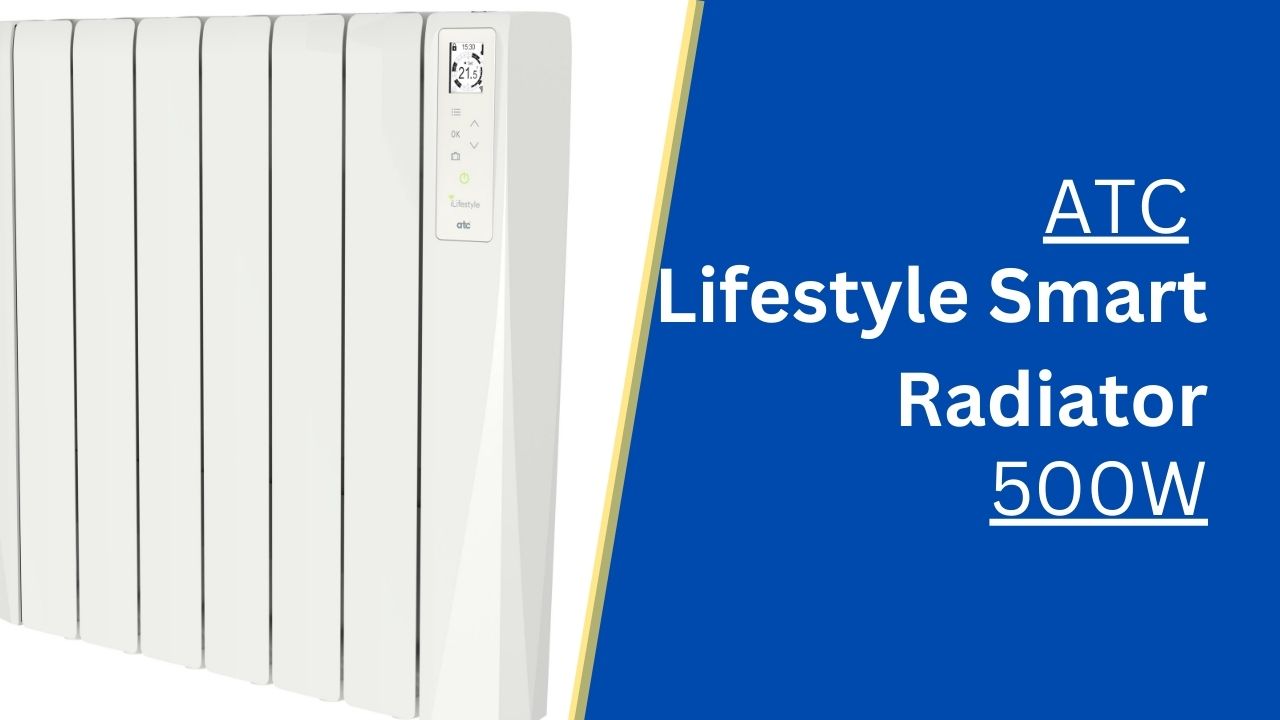
The 500W ATC iLifestyle Smart Radiator is an award-winning starter model that brings high-end features to any home. Designed with sleek aluminium fins, this radiator ensures optimal heat transmission, warming your space quickly and efficiently.
Why you'll love it:
- Wi-Fi Control: Easily manage your heating settings from anywhere using your smartphone.
- Three Modes: Choose from eco, comfort, and frost settings to suit your heating needs and save energy.
- User-Friendly: Simple installation and intuitive controls make it a great choice for smart heating beginners.
1800W ATC iLifestyle Smart Radiator
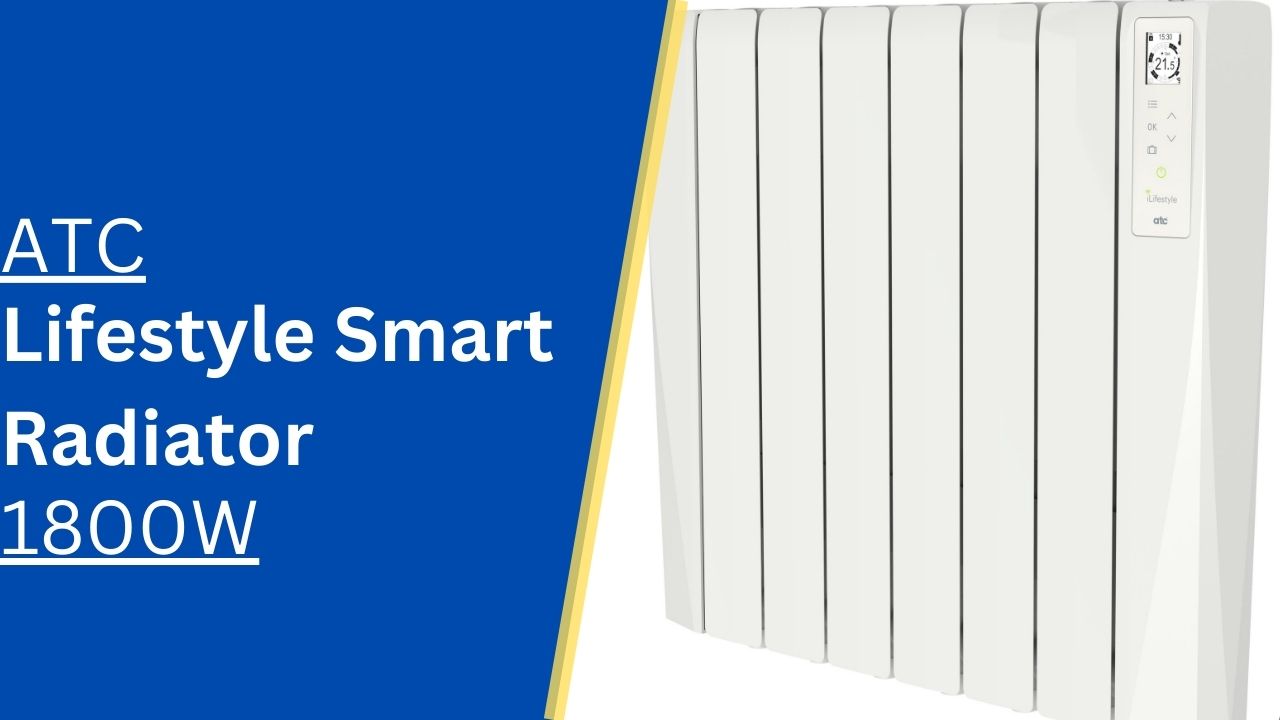
For those with larger spaces or higher heating demands, the 1800W ATC iLifestyle Smart Radiator offers the perfect solution. This powerful model provides precision control with an accuracy of 0.2 degrees Celsius, ensuring consistent comfort throughout your home.
Features that stand out:
- Precision Temperature Control: Maintain the perfect temperature with fine-tuned adjustments.
- Large Display Panel: Easy-to-read information at a glance, enhancing user convenience.
- Smart Home Integration: Compatible with voice commands through smart home assistants like Amazon Alexa and Google Home, giving you hands-free control over your heating.
Both models exemplify ATC's commitment to quality and innovation, making them excellent additions to any modern home. Available at Meteor Electrical, these smart radiators not only enhance your home's comfort but also contribute to significant energy savings, making them a smart investment for the future.
Key Takeaway
Smart heaters represent the future of home heating, offering unparalleled comfort, efficiency, and control. With their advanced features and seamless integration into modern smart homes, these heaters ensure that every room in your house is perfectly warm while helping you save on energy costs. From the precise control of smart thermostats and TRVs to the comprehensive solutions offered by smart electric radiators, these devices cater to a wide range of needs and preferences.
At Meteor Electrical, we offer a selection of top-quality ATC smart heaters that bring these benefits right to your home. Whether you're starting small with the 500W ATC iLifestyle Smart Radiator or need the robust heating power of the 1800W model, you'll find the perfect solution to enhance your living space.
Don't miss out on the opportunity to transform your home heating experience. Visit Meteor Electrical today and explore our range of smart heaters to find the perfect fit for your home. Invest in comfort, efficiency, and future savings with ATC smart heaters from Meteor Electrical.
FAQ: Smart Heaters
What is a smart heater?
A smart heater is a heating device that connects to your home's Wi-Fi, allowing you to control it remotely via a smartphone app or home assistant. These heaters offer advanced features like scheduling, temperature monitoring, and energy-saving modes.
How do smart heaters save energy?
Smart heaters save energy by allowing precise control over heating schedules and temperatures. They can automatically lower the heat when you're not home and adjust based on weather forecasts and room occupancy, ensuring no energy is wasted.
Are smart heaters easy to install?
Yes, most smart heaters are designed for easy installation. Many models can be installed by homeowners with basic DIY skills, while others may require professional installation, especially if integrated with existing heating systems.
Can I control smart heaters with my voice?
Yes, many smart heaters are compatible with voice-controlled home assistants like Amazon Alexa and Google Home. This allows you to adjust settings, turn the heater on or off, and change temperatures using simple voice commands.
What are the benefits of using a smart heater?
The main benefits include increased comfort, energy efficiency, and convenience. Smart heaters allow you to set custom heating schedules, control temperatures remotely, and reduce energy consumption, leading to lower utility bills and a more comfortable home environment.
Do smart heaters work with other smart home devices?
Yes, smart heaters are designed to integrate with other smart home devices. This allows for comprehensive home automation, where your heating can be synchronised with smart lights, plugs, and security systems for enhanced convenience and efficiency.
Where can I buy a smart heater?
You can purchase a variety of high-quality smart heaters, including the ATC iLifestyle models, at Meteor Electrical. Visit our website or store to explore our range and find the perfect smart heater for your home.

